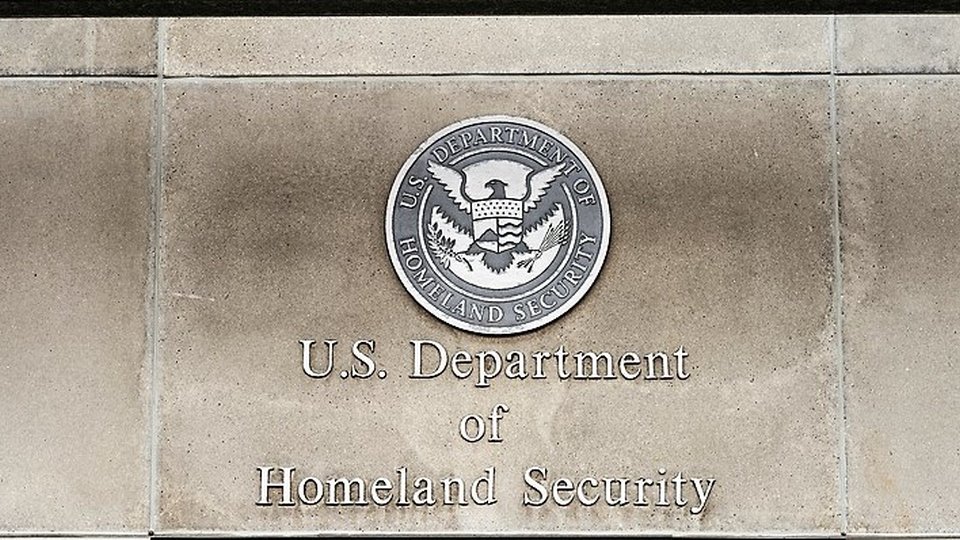Article
Federal directive calls convenience services ‘essential’ during COVID-19 shutdown: What it means to you
Convenience services have been designated "essential" services to the country's critical infrastructure under a federal directive during the COVID-19 outbreak. Mike Goscinski, NAMA's director of federal and state affairs, offers insight on how convenience service operators can survive the pandemic.

March 30, 2020 by Elliot Maras — Editor, Kiosk Marketplace & Vending Times
It may seem like much of the economy has closed down on account of the coronavirus pandemic, but business activity continues and people still have to eat.
Hence, convenience services have been designated "essential" services to the country's critical infrastructure under a federal COVID-19 outbreak directive. Like first responders, public health organizations, utilities and other entities so designated, convenience services providers are permitted to continue to operate in most states that have shut down "non-essential" activities.
Presidential Policy Directive 21 designates the food and agriculture sector as a critical infrastructure sector whose assets, systems and networks are considered so vital that their incapacitation would have a debilitating effect on security, national economic security, national public health or safety.
On March 19, the Department of Homeland Security's Cybersecurity and Infrastructure Agency published guidance identifying "workers supporting groceries, pharmacies, convenience stores and other retail that sells human food, animal/pet food and beverage products" as critical infrastructure workers essential to the continued viability of this sector who should maintain normal work patterns pursuant to the President's Coronavirus Guidance.
 |
| Mike Goscinski |
Since the federal directive is enforced by the states, the National Automatic Merchandising Association has lobbied state governments to recognize convenience services as essential to critical infrastructure. At the time of this report, 27 states have done so, with others expected to follow suit, according to Mike Goscinski, NAMA's director of federal and state affairs.
The lobbying effort is one of several NAMA programs to help convenience services operators manage the challenges related to the coronavirus pandemic.
Goscinski discussed the importance of Presidential Policy Directive 21 in a phone interview with Vending Times. Following are excerpts from that interview.
Vending Times: How was the Department of Homeland Security memorandum on essential services developed?
Goscinski: A little over two weeks ago (from March 27) when the spread of the virus increased and it became inevitable that the U.S. would follow the social distancing guidelines like other countries have been putting into effect, NAMA began engaging at both the federal and state level knowing that as the shutdown orders came out, it will impact who's able to operate and who's not. NAMA joined with other trade associations in the food and beverage space to reach out to the Department of Homeland Security and start the conversation around the agency making a critical infrastructure declaration. Essentially DHS worked with us as they produced the memorandum. We thought that the language (in the final memorandum) covered everything, including vending machines, micro markets, pantry services as well as office coffee services.
Vending Times: How many states have adopted these recommendations under the federal directive?
Goscinski: To date we have had 27 states announce orders. (As of March 27 these included Arizona, California, Colorado, Connecticut, District of Columbia, Hawaii, Idaho, Illinois, Indiana, Louisiana, Maryland, Massachusetts, Michigan, Montana, Nevada, New Hampshire, New Jersey, New Mexico, New York, Ohio, Oklahoma, Oregon, Vermont, Virginia, Washington, West Virginia and Wisconsin.)
Vending Times: How can our readers know if their state is covered by a "stay at home" order and if their state is following the DHS directive for essential services?
Goscinski: There are resources our members have available to them including the "stay at home" tracker on the NAMA coronavirus resource center on the NAMA website. These resources also include a transportation certificate that NAMA has put together at the encouragement of DHS to have all of the documentation necessary for drivers who are operating in states with orders to be able to show why they are deemed essential.
Vending Times: What about states that have "stay at home" orders but are not following the DHS directive for essential services?
Goscinski: We're working on this. In terms of individual operators, we're encouraging them to continue returning back to the state tracker, but also have the confidence to know that we are doing the proactive outreach where they haven't declared orders yet.
Vending Times: Are you aware of any regulations being adopted by any local jurisdictions in addition to state mandates?
Goscinski: There was an issue in Mississippi where a mayor had shut down his township, but the governor declared that his (the governor's) order superseded the order of any lower ranking official.
Vending Times: Are you aware of any convenience services business that has been forced to shut down because of any type of mandate related to the coronavirus epidemic?
Goscinski: Not to my knowledge.
Vending Times: Another aspect of the DHS directive is that it gives you the full scope of operations that are deemed essential to the nation's infrastructure. It's a large number of operations: health care, transportation, energy, public works, technology, critical manufacturing and more. This is certainly good for business, but it raises a question. Why does it seem that so many businesses are closed? There's a disparity between the amount of activities deemed essential and how empty the streets look, wouldn't you agree?
Goscinski: Absolutely. I live in Washington, D.C. From my window, I can see a major thoroughfare for folks that come in and out of work every day, and it's so quiet the past two weeks. Places are deserted probably because they are following the instructions of our nation's leaders to stay at home and social distance. But that doesn't mean the world comes to a halt. And that is exactly why it's important for convenience services to continue to be able to operate.
Vending Times: The memo also calls upon "essential" businesses to adopt risk management policies. What would risk management policies be for convenience services?
Goscinski: It is really just strategizing a way to follow those risk mitigation strategies promoted by CDC and FDA. On NAMA's resource page we link directly to all of those as well as a positive test protocol that was developed by the food and beverage issue alliance. It's a format for members and how they can continue operating and the best practices for them to take.
Vending Times: Are there any other areas of guidance NAMA is offering at this time?
Goscinski: We held two NAMA town halls last week (the week of March 16) to really hear where those stresses are coming in. On that resources page we also have links to the Small Business Administration, the Occupational Safety and Health Administration, the Federal Motor Carriers Safety Administration, the Department of Labor and more. We understand this is a challenging time for everybody. We're a resource for no matter what question our members have. To access the NAMA coronavirus resource page, click here.
Vending Times: How long of a time period has it been for getting all of this work done around coronavirus?
Goscinski: Looking at the calendar, I can't believe it's only been two weeks since things really took off. It was the end of the week of the 13th.
Vending Times: How large is NAMA's government affairs staff?
Goscinski: It's a team of three, four including Eric Dell, our senior vice president of external affairs. Sandy Larson is responsible for the western states, and Wes Fisher handles the eastern states. We also have a broad coalition of state councils. In addition, individual members played a role using our grassroots action center page. Members were able to send a form message directly to their state officials to designate their industry as an essential industry.
NAMA is here to help the industry in this challenging time. We think we have a pretty good catalog of information on our coronavirus resources page.
Photo courtesy of NAMA.
For the latest updates on how the coronavirus is affecting the vending industry, click here.
About Elliot Maras
Elliot Maras is the editor of Kiosk Marketplace and Vending Times. He brings three decades covering unattended retail and commercial foodservice.
 ChatGPT
ChatGPT Grok
Grok Perplexity
Perplexity Claude
Claude






